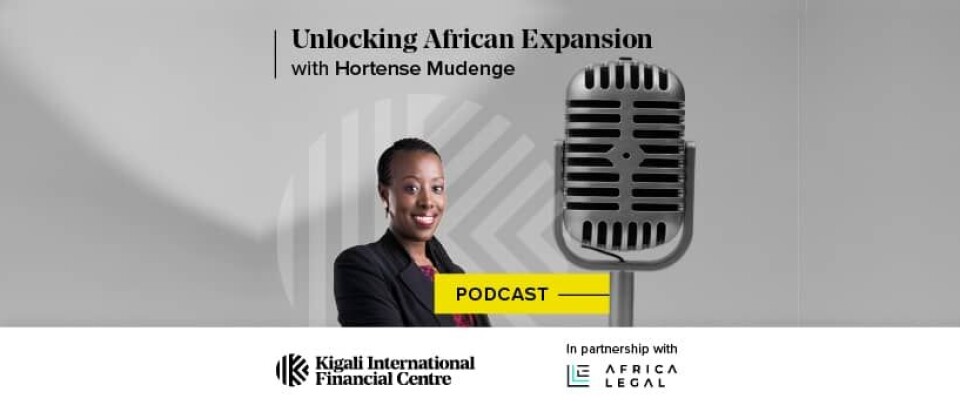Copyright : Re-publication of this article is authorised only in the following circumstances; the writer and Africa Legal are both recognised as the author and the website address www.africa-legal.com and original article link are back linked. Re-publication without both must be preauthorised by contacting editor@africa-legal.com
Unlocking African Expansion

In this podcast, Hortense Mudenge of Rwanda Finance Limited, the agency which operates the Kigali International Financial Centre, and Africa Legal discuss the findings of their latest collaborative research report. This third report focuses on expanding markets in Africa.
A survey into unlocking expansion opportunities across Africa has revealed that around 85% of respondents, being both corporates and service providers, expect their operations to expand into new markets within the next five years – notwithstanding the coronavirus pandemic. The drivers behind this confidence growth are the most recent economic reports from the International Monetary Fund which highlighted that the GDP growth in Sub-Saharan Africa is expected to rebound to 4-5%.
Hortense Mudenge, Chief Operating Officer at Rwanda Finance Limited, told Tom that the reports show that Africa continues to have the fastest growing population and urbanization rates which means great opportunities for existing and new businesses. She lists e-commerce, e-logistics, and financial technology as platforms that are enabling businesses to easily expand to new markets from their domestic base of operation.
While just over 20% of respondents to the survey indicated the use of holding companies, Hortense believes there is room to grow and develop this aspect. She says holding companies are seen to be the most efficient model for asset consolidation and management.
“If you’re a company and you have multiple businesses across different jurisdictions, you are going to be exposed to different risks. There will be a need for you to find a structure that can allow you to easily manage or distribute your assets effectively.” That is where Kigali International Financial Centre (KIFC) speaks to the heart of what can be offered to African-based companies, or companies looking to set up shop on the continent.
Hortense goes into detail on discussing whether holding companies are viable for young, high growth businesses and talks about the innovation explosion witnessed in many African markets.
She is particularly excited about the advancement in technology – both financial and regulatory – and its capabilities for monitoring and compliance.
“Some of the key innovative products that we’re really keen on developing are centred around financial and regulatory technology and that is because we’re seeing an increase in financial inclusion and compliance. There’s also the opportunity for fintech investors and actors to pilot their projects in our market.”
Click here to listen to the podcast on SoundCloud
To join Africa Legal's mailing list please click here
